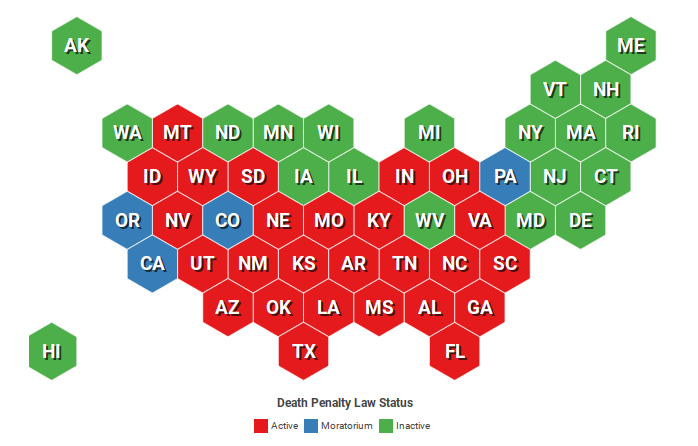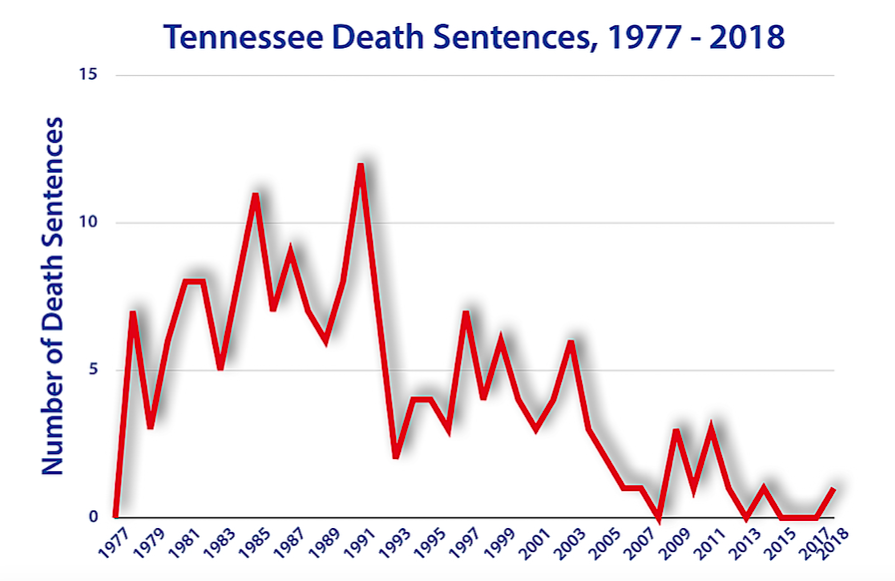“If you rape a child in the state of Tennessee, you will die. Period.”
This is the hope of state House Majority Leader Rep. William Lamberth (R-Cottontown). If his legislation passes, adults over the age of 18 could face the death penalty if they rape a child under the age of 12, he told the House Criminal Justice Committee last week. He described his legislation before the Tennessee General Assembly as “the gravest type of bill we would possibly consider.”
“If [the legislation] saves even one child from going through that, because the fear of [the death penalty] gets into the head of some monster out there — that’s even thinking about this — then it’s worth saving that child,” Lamberth said. “I will tell you life in prison for these evil people is simply too good. They should not be able to live out their days with the rest of us, including their victim — paying for their food, and housing, and care, and medical as they age and everything else. If you rape a child, you should die.”
The bill moved quickly through the House committee system. It is now placed behind the budget for consideration by the full House. The Senate bill was only introduced in mid-January and awaits a review by the Senate Judiciary Committee, its first hearing by lawmakers in that house. Its sponsor there is Sen. Jack Johnson (R-Franklin), Senate Majority Leader.
So far, the only votes cast against the bill are from Democratic House members Rep. Ronnie Glynn (D-Clarksville), Rep. G.A. Hardaway (D-Memphis), Rep. Joe Towns Jr. (D-Memphis), and Rep. Gloria Johnson (D-Knoxville).
Johnson said the penalty of child rape in Tennessee is life in prison, a sentence that must be served fully. She argued this already holds the guilty accountable. She worried a death penalty sentence would have a “chilling effect” on victims reporting the crime.
“If a child was raped by an uncle, say,” Johnson said. “The uncle’s going to say, ‘Don’t tell because I’ll be killed, I’ll get the death penalty.’ Then, the mother of the child, who is the sister of the [alleged perpetrator], maybe won’t want to testify against her brother, if it means the death penalty.
“If the victims fear, it will create a chilling effect on reporting.”
Johnson also argued the move could further “re-victimize the victim.”
“Not only is [the child in the scenario] a victim, she will be victimized every day by the state that’s going to require her to carry that pregnancy [to term]. Then, they’re going to require her to show up for appeal after appeal.”
“It’s a heinous crime and I hate to think about it, but life in prison also takes care of the situation.”
Lamberth read an email from a young, female victim, asking committee members to support the legislation. It spoke the high hurdles for criminal charges and soft sentences for defendants accused of child rape. It described their sexual desires like “they were at an all-you-could-eat buffet with the appetite of a bear coming out of hibernation and only having access to a single plate.”
“The ones that actually get convicted should face real consequences,” the letter read. “Perhaps if that happened, there would be less people in our community forever changed.”
If the legislation passes, Lamberth vowed to fight for its implementation in court. A 2008 U.S. Supreme Court ruling said the death penalty is not proportional punishment for the crime of child rape. Lamberth countered this, however, noting that the court’s ruling came because “not enough states had this type of penalty on the books.”
“We’re seen other decisions by the Supreme Court overturned,” Lamberth said. “I believe this particular makeup of the court, it leans more towards state’s rights.”
Death penalty executions remain on hold in Tennessee, after a scathing report in December 2022 found numerous problems with the state’s execution protocols.
Two death penalty bills failed in the legislature last year. One would have added firing squads to the state’s options for executions. Another would have brought more transparency to the execution process.
One death penalty bill passed last year. It gave the Attorney General control over post-conviction proceedings in capital cases, rather than the local District Attorneys. That bill was ruled unconstitutional in July by Shelby County Criminal Court Judge Paula Skahan.


 Adobe Stock
Adobe Stock  Death Penalty Information Center
Death Penalty Information Center  Death Penalty Information Center
Death Penalty Information Center  Death Penalty Information Center
Death Penalty Information Center  Death Penalty Information Center
Death Penalty Information Center  Death Penalty Information Center
Death Penalty Information Center